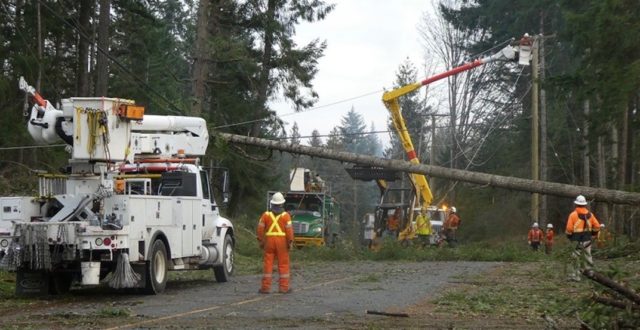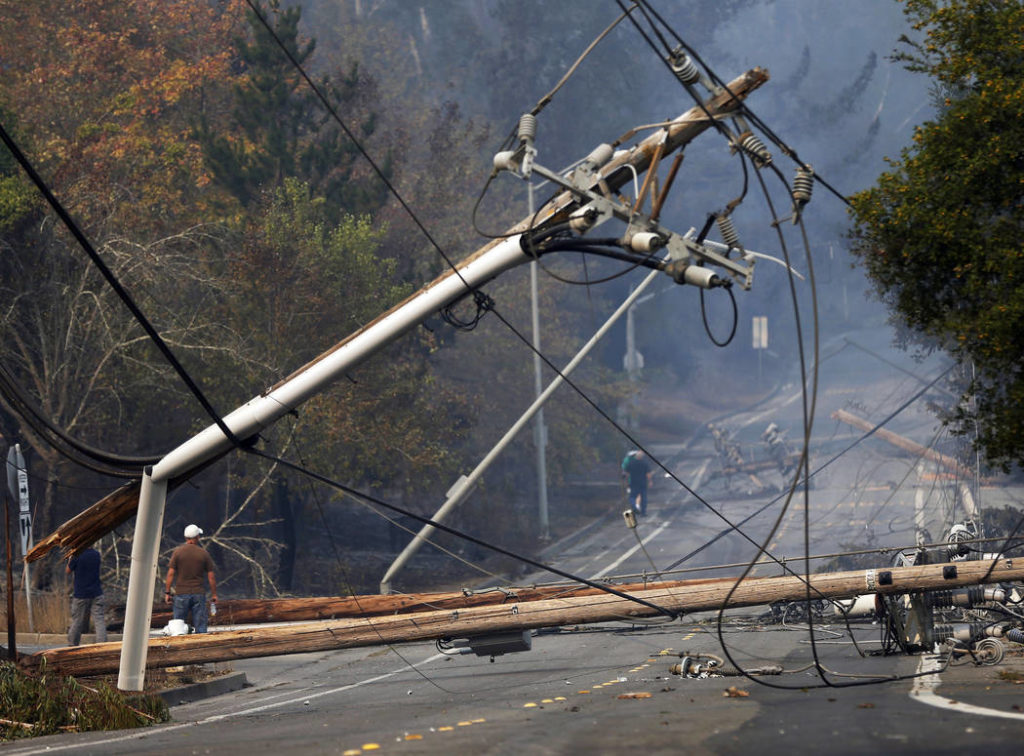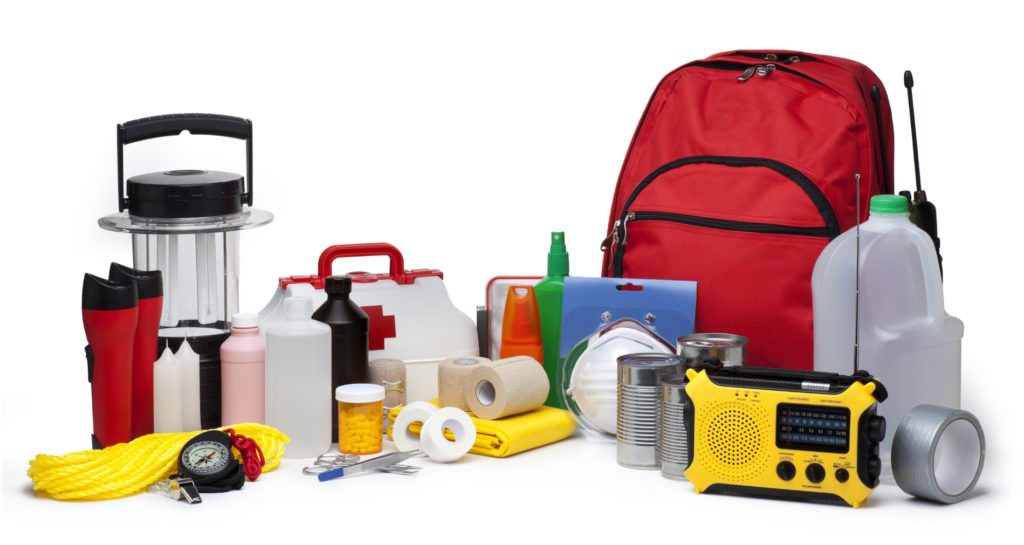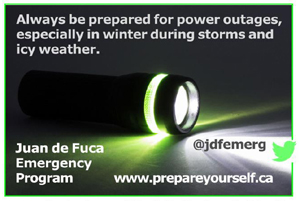
Thursday December 10, 2020 | VANCOUVER ISLAND, BC
by Kiley Verbowski | Island Social Trends | Mary P Brooke, editor
Most British Columbians do not have an emergency kit or plan in place to ride out a long power outage, even when they report being stocked up with pandemic supplies.
That’s according to a report released by BC Hydro in November 2020.
“Storms are becoming more frequent and severe,” says Karla Louwers, Community Relations rep with BC Hydro. “The number of storm-related outages has risen significantly in recent years,” she said this week.
Among respondents surveyed by BC Hydro earlier this year, over half do not have an emergency preparedness kit. And most of those respondents do not plan to purchase one. Putting one together yourself is easy, it just takes following a list and gathering up the necessary things.
More storms, more severe:
BC Hydro data shows that there has been a 117% increase in storm frequency — from 52 in 2014 to an average of 113 over the past three years.
Those storms of the past three years have resulted in power outages for over one million customer addresses annually. Two of the largest storms in BC Hydro history have occurred since 2018; climate change scientists are predicting this trend to continue, it is stated in the November 2020 BC Hydro report.
COVID prep, outage prep:
During COVID, the utility’s survey found that 44% of British Columbians had stocked up on supplies such as groceries, toilet paper, hand sanitizer, disinfectant wipes, and alcoholic beverages. An interesting finding was that 20% of respondents think they are more prepared for winter storms because of their preparations for COVID-19. However, these supplies alone will not prepare residents for an extended power outages or other natural disasters.
The power outage scenario requires batteries, lighting capability (e.g. flashlights, battery-operated lamps), blankets for warmth (that could include foil emergency blankets), food and water for each person (and pet) for up to seven days, needed medications, and perhaps some weather-related gear like shovels and salt for sidewalks.
Outages can be expected:
In the major storm of December 2018, as many as 750,000 Vancouver Island BC Hydro customers lost power. Of those households, 7% ended up remaining in the dark for over 72 hours.
On New Years Eve of last year, 100,00 customers in central and southern interior BC lost power, and many were left without electricity for several days into 2020.
Most outages are caused by trees or branches falling onto power lines. BC Hydro has “three times more trees per kilometre of power lines than any utility in North America”, according to the November report, leading to increased likelihood of outages, particularly in the winter when strong winds, ice, and precipitation can be factors.

Who is and who isn’t prepared:
British Columbians between the ages of 18 and 34 are particularly underprepared, with 50% reporting not having an emergency plan, it was found in the survey. It was not clear whether this was due to lack of information or the cost of gathering up preparedness supplies.
Good to know… households on Vancouver Island and the Gulf Islands were the hardest hit in the 2018 storm, but were also the most likely to be prepared for power outages, along with residents in Northern B.C.
At home during a power outage:
To aid BC Hydro in restoring power to your home and neighbourhood, unplug all electronics and minor appliances, and turn off all light switches except for one outside light. This will decrease the stress on the system when power is regained, and will help workers know when power has been successfully restored to your residence.
A full freezer will safely keep food for up to 48 hours if kept shut. A half-full freezer will safely keep food up to 24 hours. If the power is out for less than four hours, food in the refrigerator will remain safe to eat. If you need to take out some food for your family, being quick is important, to help maintain low temperatures in the freezer or fridge.
Reporting downed lines or other details:
Outside your home, be alert and cautious around downed power lines. Assume that any damaged line is live, even if it is not smoking, sparking, or buzzing. Keep at least a 10-metre distance and call 911 immediately.
You can call 1 800 BCHYDRO for information about your neighbourhood during a power outage. Residents are also encouraged to call this number if you have an information about the power outage, for example, if you saw sparks, or heard a loud bang. This will aid BC Hydro in sending the appropriate size of crew and equipment to the area.
BC Hydro crews are taking extra precautions to keep their crews and communities safe during COVID-19, and are still restoring power to over 95% of customers within 24 hours of a storm.
How to prepare for compounding crises:
In years past, if the power went out, residents may have gone to a friend’s house, a restaurant, or the movie theatre to ride out a storm. However, with restrictions and precautions during the infectious pandemic, 50% of survey respondents said they would not leave home.
Hunkering down at home:
“We encourage our customers to be prepared for outages by having a well-stocked emergency kit and a preparedness plan for their household in place,” says Louwers.
Share the plan with all family members. Try to review the plan once or twice a year, or especially ahead of the fall/winter season.

A simple emergency kit should include:
- bottled water
- flashlights
- extra batteries and an external phone charger
- first aid kit
- non-perishable food items
A more involved emergency kit for extended power outages and other natural disasters also includes:
- medications
- ice packs
- whistle
- battery of crank operated crank and radio
- warm clothing a blanket
- cash in small bills
- garbage bags
- duct tape
- personal hygiene items
- a written emergency plan and contact information
- important documents
- a local map
- extra keys for house and car
- items for your pets
A more complete list, including ideas for a car kit, can be found on the BC Hydro website.






